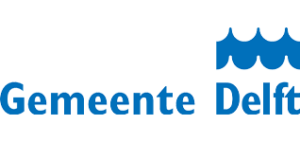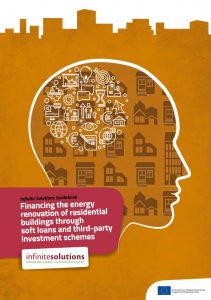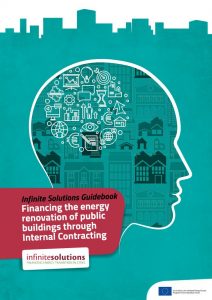In 2003, Delft adopted a Local Energy Action Plan with the following main goals to be achieved by 2012 compared to 1990:
– Decrease the energy consumption of Delft by 15%.
– Reduce CO2 emissions by 15%.
– Cover 5% of total energy consumption with renewable energy.
No financial instruments available to homeowners for energy renovation of the existing housing stock. In 2003, Delft set up the Delft Climate Investment Fund (DCIF). A budget of €12 million was made available for 9 years to invest in the built environment – office buildings, industrial buildings, new housing, social housing companies, etc.
At first, the “3E Delft Climate plan 2003-2012” focused on the new housing areas and renewable energy. One of the Fund’s main goals was therefore to develop new highly energy-efficient houses. To stimulate this, the DCIF provided grants to housing associations and developers who implemented ambitious energy saving and renewable energy production measures (at least 15% better than the Dutch EPC legislation).
Although the housing sector was an important energy consumer back in 2003, existing private residential buildings were excluded from the DCIF and there were no financial instruments available to private homeowners – neither at the national level nor at the local or regional levels.
Solution
In 2006, the city council decided to set up a specific financial instrument that would encourage homeowners and tenants to invest in energy saving measures and renewable energy. The instrument was also made available to community organisations, associations and NGOs. As subsidies were not an option for the private housing sector (individual house owners), due to the restrictions of the DCIF regulation, a Delft Revolving Fund (Fund) and a soft loan scheme were set up.
In 2010, Delft started a new programme to encourage private homeowners to renovate their homes. A wide range of new instruments was set up in cooperation with the local energy agency. As part of a “neighbourhood-based approach”, a team of advisors, builders and public officials visited neighbourhoods to promote measures suited to their specific types of houses. A communication campaign was also launched to raise awareness about the benefits of energy renovation.
Business Model
Low-interest energy renovation loans. The city of Delft used its own budget to establish the Fund. The Fund issues low-interest loans on attractive terms to homeowners. The Fund is governed by the municipality and managed by the bank – Stichting Volkhuisvesting Nederland (SVn). SVn operational costs are paid by the municipality: 0.9% of the loan until maturity of the loan.
Homeowners’ advantages
Information and technical assistance
- Homeowners visit the Delft website where they can get all the information about the soft loan.
- They prepare an energy renovation plan with the expected costs and an offer from one or more builders. If homeowners so wish, they can get support from Delft E Design or Reimarkt Delft but they can also hire another advisor or make their own renovation plan.
- Homeowners apply for a soft loan. The City board decides in a maximum of eight weeks about the application (this can be extended by another 8 weeks). The work can only start once the loan is approved and granted. Homeowners or organisations can submit special requests for a larger loan.
- Delft E Design or Reimarkt Delft guide the homeowners through the process of renovation and ensure contacts with reliable builders.
| Loan conditions |
| Loan amount: max. € 10,000. A higher amount is possible upon a special request. This amount is sufficient for individual measures but not for extensive renovation. If homeowners opt for extensive renovation they can submit a special request and the city board can decide to offer a higher amount. Interest rate: 4% lower than the market (10 year interest) with a minimum of 1.5% Maturity: 10 years (early repayment is encouraged, not penalised) Guarantee: SVn runs a financial check on creditworthiness. The revolving fund is a guarantee for SVn. In the event of defaulters the size of the fund is reduced. The risk is thus covered by the municipality of Delft. Beneficiary’s own contribution: no own contribution is requested from homeowners other than paying back the loan and interest. |
Financing scheme highlights
| Strong points | Weak points |
| – Short internal procedures – Clear management costs – Own fund which means control and flexibility to change the eligibility criteria when needed (customised for extensive renovation) – Fund is simple and easy to set up – Use of existing good relations (SVn) | – Limited budget – Risks for the municipality |
Recommendations: Start with a small fund financed by the municipality to make the launch relatively easy. Later, you can make your fund grow or revise it.



